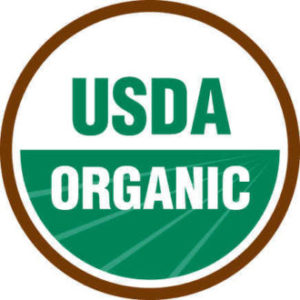
Jan 12, 2021
USDA nixes recognition of India’s organic program
Starting today, the USDA is dismantling U.S.-India organic recognition – a relationship that’s existed since 2006.
 The USDA’s Agricultural Marketing Service (AMS) wrote in an email newsletter that it was changing its approach in a transition period that will allow organic operations to apply for certification to U.S. organic standards by USDA-accredited certifiers. Previously, certification by India’s Agricultural and Processed Food Products Export Development Authority (APEDA) was honored by USDA AMS’ National Organic program.
The USDA’s Agricultural Marketing Service (AMS) wrote in an email newsletter that it was changing its approach in a transition period that will allow organic operations to apply for certification to U.S. organic standards by USDA-accredited certifiers. Previously, certification by India’s Agricultural and Processed Food Products Export Development Authority (APEDA) was honored by USDA AMS’ National Organic program.
“Currently, USDA does not have direct visibility or enforcement authority over many organic certifiers and operations in India that sell into the U.S. market,” according to the newsletter. “USDA has determined that we need a more active oversight presence in India to more directly protect organic integrity.”
In a released statement, the Organic Trade Association said it supported the USDA’s decision:
“It is critical in international trade agreements that foreign governments have sufficient oversight, accreditation, compliance and enforcement control in place to ensure that their organic requirements are applied and enforced. Integrity in organic is our highest priority, and ensuring that all equivalency and recognition agreements are based on systems of comparable rigor and standards is key to maintaining that integrity.
“The Organic Recognition Agreement is different from an Organic Equivalency Agreement. The U.S. has in place seven equivalency agreements – with Canada, EU, Japan, South Korea, Switzerland, Taiwan, UK. The U.S. has two other recognition agreements in place with Israel and New Zealand. An Organic Equivalency Agreement recognizes the organic standards and oversight systems of each trading partner as comparable and verifiable. Once an equivalency agreement is established, maintaining it is an ongoing process, with USDA conducting regular onsite audits of the foreign government’s organic program. In an Organic Recognition Agreement, a foreign government accredits certifying agents in that country to the USDA organic standards, and these foreign certifying agents are authorized to certify organic farms and processing facilities to NOP standards for export to the USA. However, there is not always visibility or enforcement authority over certifiers and operations under recognition agreements.
“Safeguarding against fraud throughout the global organic system benefits the entire organic sector, and is absolutely essential in honoring the trust that consumers have in the Organic label. The USDA has given exporters in India a generous transition period of 18 months to recertify to a National Organic Program (NOP) accredited certifier, which should be adequate time to prevent any disruptions in the trade between our two countries.”
The USDA laid out a timetable for the transition:
- By July 12, 2021, to continue to export to the United States, current organic operations in India will need to have applied for certification with a USDA-accredited organic certifier.
- By mid-March 2021, USDA certifiers will be able to list these organic operation applicants in India in the Organic Integrity Database, to help U.S. buyers verify that a farm or business in India has applied for NOP certification.
- After July 12, 2022, USDA organic certification by a USDA-accredited certifier will be required to import organic products from India to the United States.
- APEDA-accredited certifiers may apply to NOP for direct accreditation to the USDA organic program at any time.
- Organic certifiers and operations in India are responsible for ensuring compliance to any additional Government of India export requirements, including TraceNet reporting and documentation.
Organic businesses that buy from an organic supplier certified by an APEDA-accredited certifier were advised by the USDA to communicate with those suppliers about the need to apply for U.S. National Organic Program certification to a USDA-accredited certifier by July 12, 2021, to continue their business with you. After July 12, to continue accepting products from those suppliers, businesses will need to use the Organic Integrity Database to verify that any organic supplier is already certified or has applied for organic certification with a USDA-accredited certifier.
Further updates will be posted to the NOP web page for India, according to the USDA’s newsletter.









